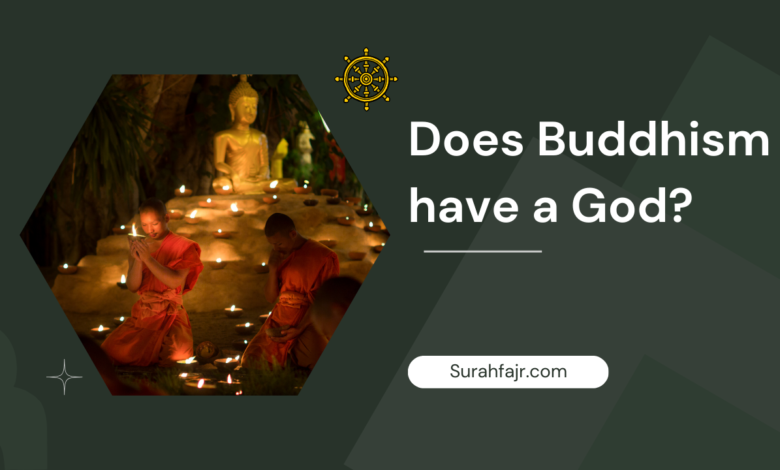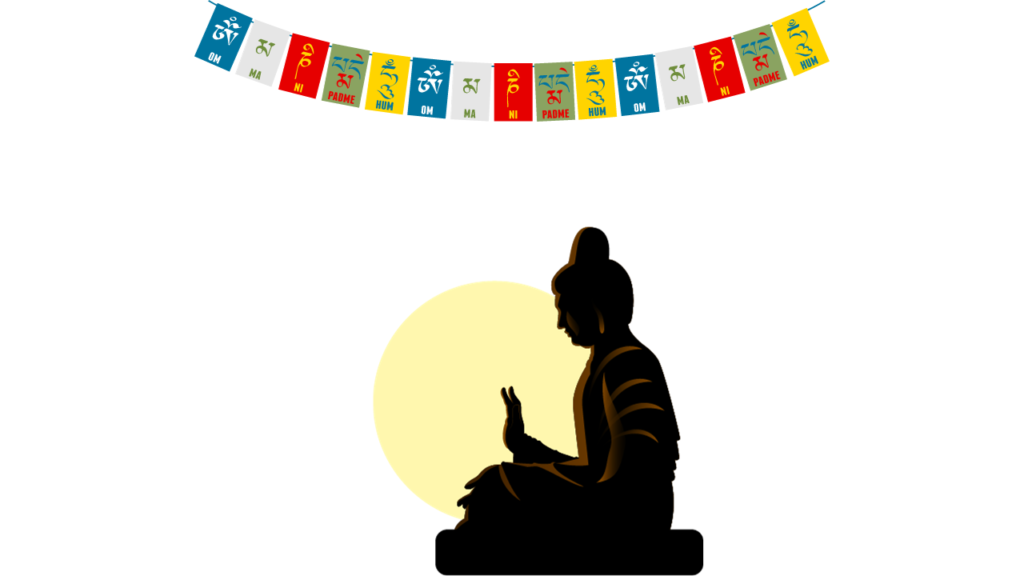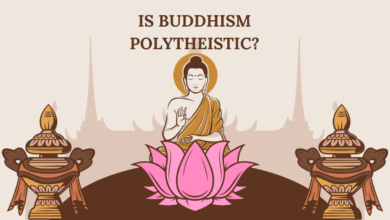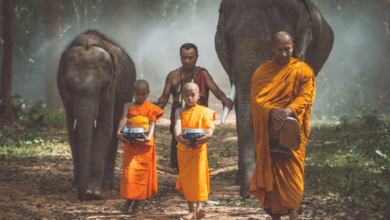
Does Buddhism have a God?
No, Buddhism does not believe in a traditional, omnipotent, or creator God as seen in many other religions. It is generally considered non-theistic.

Introduction
Buddhism, one of the world’s major religions, is often described as a path to spiritual enlightenment and inner peace. While many religions prominently feature a deity or deities, Buddhism is distinctive in its approach to the concept of God. The question of whether Buddhism has a God is a complex and nuanced one. To understand the role of God, or the lack thereof, in Buddhism, we must delve into the core beliefs and principles of this ancient and influential faith.
The Absence of a Creator God
Unlike many other religions, Buddhism does not revolve around a creator God or a personal deity who oversees and controls the universe. In Buddhism, the focus is primarily on human existence and the individual’s journey toward enlightenment, known as Nirvana. Siddhartha Gautama, the historical Buddha, who founded the religion in the 6th century BCE, emphasized the impermanence of all things, the nature of suffering (dukkha), and the path to liberation from it.
Instead of a creator God, Buddhism places a significant emphasis on the law of causality, known as karma. According to Buddhist belief, karma is the principle of moral cause and effect, which governs the cycle of birth, death, and rebirth (reincarnation). How one acts in this life will have consequences in the next life, making individual responsibility and moral choices crucial aspects of the Buddhist path.
Also Check
- Is Hinduism Monotheistic?
- Is Christianity and Hinduism related?
- When I think of Christmas?
- The Role of Faith in Christian Belief
The Concept of Devas and Bodhisattvas
While Buddhism does not endorse a creator God, it acknowledges the existence of various celestial beings and deities known as “devas.” Devas are considered powerful, enlightened beings who inhabit higher realms of existence, living in a state of bliss and wisdom. Buddhists believe that the actions of these devas are influenced by their own karma, and they, too, are subject to the cycle of birth and rebirth.
Bodhisattvas, on the other hand, are important figures within Mahayana Buddhism. These are enlightened beings who have chosen to postpone their entry into Nirvana to help guide and teach others on their path to enlightenment. Bodhisattvas, such as Avalokiteshvara and Manjushri, are revered as compassionate and wise beings who serve as sources of inspiration and assistance for practitioners.
In this sense, Buddhism does incorporate divine or semi-divine beings, but they are not the focal point of worship or devotion. Instead, they are seen as fellow travelers on the path to enlightenment who can provide guidance and support.
The Concept of Ultimate Reality
Buddhism, especially in its more philosophical and abstract forms, often addresses the concept of “ultimate reality.” This is the idea that there is a transcendent truth or universal principle beyond the mundane world of appearances. While this concept may appear similar to the idea of God in other religions, it is not personified or anthropomorphized in the same way.
In Mahayana Buddhism, the concept of “emptiness” (shunyata) is crucial. Emptiness does not mean a void or nothingness, but rather it signifies the lack of inherent, unchanging essence in all things. This concept is central to understanding the nature of reality, human suffering, and the path to enlightenment.
Conclusion
In summary, the question of whether Buddhism has a God is a complex one. Buddhism does not adhere to the traditional idea of a creator God who oversees the universe and dictates human affairs. Instead, it emphasizes personal responsibility, karma, and the pursuit of enlightenment as the path to liberation from suffering.
While Buddhism acknowledges the existence of devas and bodhisattvas, they are not deities in the traditional sense but rather enlightened beings who serve as sources of inspiration and guidance. The focus of Buddhist practice is on achieving individual spiritual growth and understanding the nature of reality.
Buddhism, with its diverse traditions and interpretations, offers a unique perspective on spirituality and the absence of a central deity allows for a wide range of beliefs and practices within its fold. Ultimately, whether Buddhism has a God or not depends on one’s interpretation and perspective within this rich and multifaceted tradition.

(FAQs) about the concept of God in Buddhism?:
Does Buddhism believe in a God?
No, Buddhism does not believe in a traditional, omnipotent, or creator God as seen in many other religions. It is generally considered non-theistic.
Is there a deity in Buddhism that is equivalent to God?
Buddhism does not have a single, all-powerful deity like the God in monotheistic religions. Instead, it acknowledges various celestial beings and deities, but they are not considered creators or ultimate authorities.
Who do Buddhists worship or pray to?
Buddhists often revere and make offerings to enlightened beings like Buddhas and bodhisattvas. These figures are seen as role models who have achieved spiritual awakening and can provide guidance and inspiration.
What is the highest authority in Buddhism if there is no God?
In Buddhism, the ultimate authority is the concept of Dharma, which encompasses the teachings and principles of the Buddha. Buddhists focus on following the path and principles of Dharma to attain enlightenment.
Can Buddhists believe in a God if they choose to?
Buddhism is generally open to individual interpretations, and some Buddhists may incorporate elements of other religious beliefs, including the belief in a God, into their practice. However, this is not a core aspect of traditional Buddhist doctrine.
Why is Buddhism considered non-theistic?
Buddhism is considered non-theistic because it does not rely on a personal God for salvation or guidance. It places greater emphasis on individual effort and inner transformation to attain enlightenment.
What is the Buddhist view on the existence of God?
Buddhism is largely silent on the existence of God. It neither confirms nor denies the existence of a deity and, thus, remains agnostic on this matter.
Are there sects of Buddhism that incorporate the belief in God?
While most Buddhist traditions are non-theistic, some sects, like Pure Land Buddhism and some Mahayana traditions, have celestial beings that could be seen as deities. Still, these beings are not equivalent to the monotheistic God of other religions.
What role do rituals and prayers play in Buddhism if there is no God?
Rituals and prayers in Buddhism are often used for meditation, mindfulness, and paying respects to enlightened beings or ancestors. They serve as tools for self-improvement and focusing one’s mind, rather than seeking divine intervention.
How does Buddhism explain the origins of the universe and life without a God?
Buddhism doesn’t focus on explaining the origins of the universe in the way that many theistic religions do. It emphasizes understanding and alleviating suffering in this world rather than speculating about the creation of the universe.

